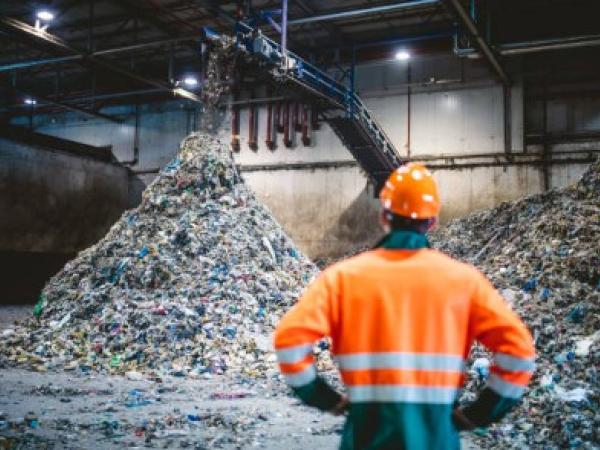The International Labour Organization (ILO) revealed that the waste and recycling industry has been growing due to greater public awareness, increasing industrial demand for recycled materials, public policies and corporate commitments to the cause.
(Read: Companies are betting on corporate volunteering to strengthen community well-being)
However, high rates of informality, low wages and long working hours are some of the challenges that this industry poses, leading to a deficit of decent work in this sector.
In Colombia, the Organization explained that since figures have been available, the trend of jobs in the waste and recycling industry has been increasing. For example, in 2021 a total of 102,100 jobs were registered, rising in the following year to 131,100. Meanwhile, the trend continued to increase during 2022, as the ILO confirmed some 163,500, to finally register 150,100 positions in 2023.
(Read more: The Florida Everglades, the largest environmental restoration project in the world)
While the global waste and recycling industry is estimated to have 6.9 million jobs, representing 0.2% of total global employment, Colombia ranked seventh in the ranking with the highest employment rate in this sector.
By 2023, Above Colombia are India with 704,500 positionsfollowed by Indonesia with 393,000, Brazil with 290,000, Germany with 189,100, the United States with 188,600 and Italy with 184,100 jobs in the waste and recycling industry.
One of the great challenges is informality. According to the Organization, in most developing countries, waste management and recycling workers do not have social security or benefits.
(See also: Green strategies positively impact operations at Ingenio Carmelita)
Recycling industry
iStock
In the case of Colombia, according to the figures, 71.8% of workers in this industry are informal, compared to 55.9% of other sectors. This is in addition to the fact that the educational level of employees is lower than in other industries.
For example, In the country, 38% of the population employed in this sector has a basic education levelin line with the 30% who are below this level. 22% are at intermediate, while only 8% are at advanced.
(See also: ‘In the Condor’s Nest’: Sustainable tourism takes over the Colombian Andes)
“To ensure that the industry can meet future demands and transition to a circular economy, there is an urgent need for retraining and upskilling programmes.“, they say.
Another point highlighted by the ILO is that, unlike in developed nations, self-employment predominates in this sector in Colombia. This means that these are not people with salaried jobs, with a salary, but rather they work on their own account.
“The predominant occupational status in the waste management and recycling industry in many developing countries is self-employed. For example, Peru, Albania, Zimbabwe, Honduras, Colombia, Indonesia, India, Turkey, Occupied Palestinian Territory, Iran and Nepal. These workers face a higher degree of economic risk and are more likely to experience decent work deficits.“, says the ILO.
(Read more: The fund that seeks to close equity gaps in health, education and youth employment)

Recycling industry
iStock
In general terms, it is explained that although the industry contributes to environmental sustainability, theWorkers often face health risks. Some of the risks they detail include exposure to toxic chemicals, biological agents and physical risks arising from handling hazardous materials and operating heavy machinery.
(Read: ‘Standards and certifications guide the activity of an organization’: Icontec)
“These risks are exacerbated in developing countries, where occupational safety and health (OSH) regulations are often weaker or poorly enforced, making workers more vulnerable to injuries, respiratory problems and long-term health issues.“, they say.
On the other hand, they report some regional disparities, as approximately 85 workers are employed in the waste and recycling industry for every 100,000 people. For example, Europe and Central Asia have the highest rate, with 174 workers per 100,000 people, while Africa has the lowest, with fewer than 30 workers per 100,000 people.
However, employment in this industry tends to be higher in more developed regions, where recycling practices are more widespread. This is due to higher recycling rates and increased demand for these types of materials.
(See also: The green revolution comes to the Olympics: Los Angeles aims for a car-free Games)

Recycling industry
iStock
Gender and schedules
The sector is dominated by men, according to the report, with women making up only 22.7% of the workforce.This, they explain, may be due to the limited opportunities that the occupation offers to women and the lack of social protection, which forces them to accept unwanted or poorly paid jobs in the recycling sector.
(See: Barranquilla company received investment for plastics processing)
An example of this is that in the Americas alone, 23% of women hold this type of employment, compared to 77% of men. However, in the global average, which was weighted at 22.7% of women, the region would be better placed. However, in the case of men, the overall rate is higher, calculated at 77.3%.
Besides, Industrial workers work longer hours than those in other sectors. The average weekly workload ranges from 23 to 57 hours across all countries, exceeding the maximum of 50 hours per week observed in other industries.
(Read also: More than 120 business projects in Colombia benefit from support in human rights)
“This extension of the working day not only limits the ability of workers to engage in other activities, such as personal development, domestic responsibilities, family time, leisure and recreation, but can also negatively affect the health and safety of workers, increasing the risk of injury.“, they conclude.

















